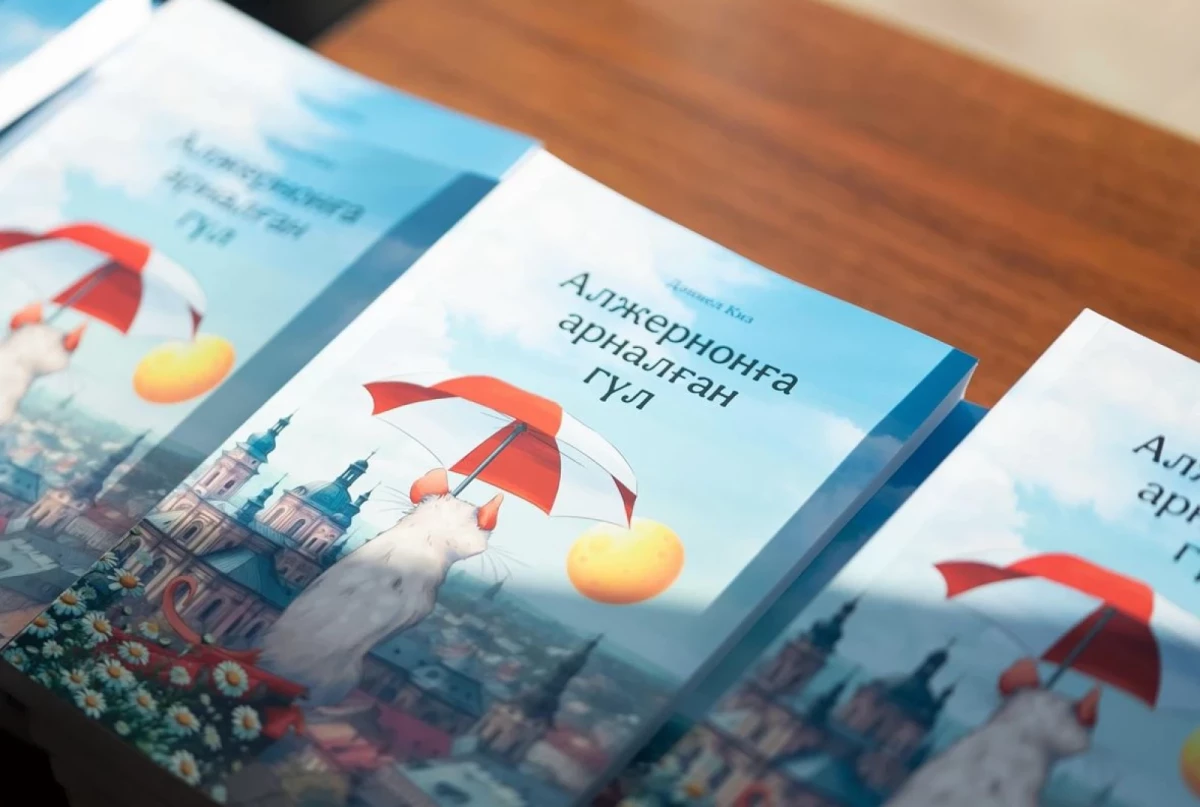Translating world literature into Kazakh is an ambitious and transformative endeavor that has gained momentum in recent years. This movement not only enriches Kazakh literature but also strengthens the cultural identity of the nation by connecting it to the global literary heritage.
In the past decade, new independent publishing houses such as "Muqaba," Alma Books, "Mazmundama," Steppe & World, Alqa Publishing, and Marfu Press have emerged in the market, bringing fresh energy to the Kazakh publishing industry by producing literature in various genres.
Among them, "Mazmundama," established in 2018, has published nearly 500 books, the majority of which are translations of foreign literature. According to the founder, Shyngys Mukan, the publishing house has released 150 new titles this year alone. One of their most notable recent publications is Daniel Keyes' science fiction novel Flowers for Algernon, which was introduced to Kazakh readers this November.
Flowers for Algernon, a science fiction novel by American writer and philologist Daniel Keyes, first published in 1959. This remarkable story, written as a diary by a cognitively impaired man, tackles themes of intelligence, humanity, and the struggles of individuals with special needs.
Shyngys Mukan, the director of Mazmundama publishing house, shared insights into the significance of bringing this novel to Kazakh readers:
"We do not translate books based on government orders but in response to public demand. Flowers for Algernon is a truly unique book. Its author, Daniel Keyes, worked as a teacher at a school for children with special needs in the United States. As a result, he profoundly captures and conveys the psychology of such children in the novel.
We began researching this book three years ago. It is written as the diary of a cognitively impaired man who records his thoughts phonetically, without following spelling or punctuation rules. This makes the initial chapters challenging to read. Despite these hurdles, the story remains as relevant and impactful today as it was more than 60 years ago. Personally, this project was deeply meaningful. I have four children, one of whom has special needs. My wife once read the Russian version of this novel and was moved to tears. She urged me to translate it into Kazakh. We reached out to Daniel Keyes' descendants, negotiated with them, and obtained the rights to publish this work in Kazakh."
The release of the novel in Kazakh was met with appreciation from literary and cultural leaders. Gaziza Kudaibergen, Director of the National Academic Library of Kazakhstan, emphasized its broader social significance:
"Individuals with special needs are often more remarkable than the rest of us. While we may be physically healthy, our minds are often plagued with limitations. There should be no ‘it doesn't concern me’ attitude in our society. Currently, many libraries have dedicated spaces for inclusive learning, and our National Library runs an English club for children with special needs. Translating Flowers for Algernon into Kazakh is a tremendous step toward fostering empathy and inclusion. I deeply thank everyone who proposed and contributed to this translation project."
The novel's release also aligns with growing recognition of the sci-fi genre's importance in stimulating imagination and innovation. As Shyngys Mukan noted:
"Previously, we translated similar works in this genre, such as H.G. Wells' The Time Machine, Douglas Adams' The Hitchhiker's Guide to the Galaxy, and recently brought Dune into Kazakh, coinciding with the release of the second part of its film adaptation. Sci-fi as a genre is incredibly important. I think this because of a story I once heard from a British author, which left a lasting impression on me. The Chinese government was astonished by how rapidly America had advanced, wondering why all the new technologies were emerging there. With a population of 350 million, how could they surpass China, with over a billion people? Upon analyzing the smartest and most successful individuals in the U.S., they discovered one common factor: these people had read a lot of science fiction books during their youth. As a result, China began placing significant emphasis on the sci-fi genre. The outcomes of that focus are evident today. As Einstein once said, 'Knowledge is limited, but imagination is boundless.' This is why we, too, need to pay special attention to books that inspire and expand human imagination".
The Kazakh translation of Flowers for Algernon is not just a literary achievement; it is a testament to the growing demand for quality literature in the Kazakh language and a reflection of a society increasingly committed to inclusion and cultural enrichment.












